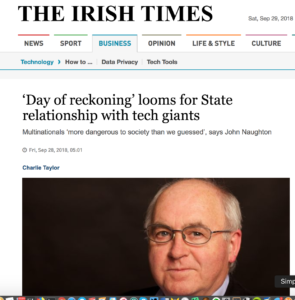I’ve thought this ever since finishing Bob Woodward’s book. But now Jack Shafer has reached the same conclusion.
I’ve figured it out: Donald Trump is the leader of the resistance inside his own administration.
The 45th president exudes more defiance from one of his short, little fingers than all the liberal yodelers of the Democratic Party and entire armies of pink pussy-hat-wearing protesters put together. When not contravening the libs, Trump opposes the traditional Republican establishment that he is supposed to command. They demand additional sanctions on the Russians; he schemes to lighten them. They want free trade; he imposes punitive tariffs. They dig NATO; he calls it obsolete and works to weaken it. They desire immigration “reform”; he insists on deportation, fewer refugees, no Muslims and the building of a wall. They want to stay in Afghanistan and Syria; he wants out. On almost a daily basis Trump fights to prove that he—and not his appointees—runs his administration.
This rings true to me. What Trump cannot bear is the idea that he is the tool of, or subordinate to, anyone else. Shafer brings up the celebrated ‘anonymous’ NYT OpEd which claimed that “There is a quiet resistance within the administration of people choosing to put country first.” Anonymous is right about the “quiet resistance,” says Shafer,
but he got it backward: He and his co-conspirators represent the Republican status quo and the foreign policy establishment that has gone largely unchallenged for more than a half-century. Meanwhile, Trump opposes the political status quo and establishment, compares U.S. intelligence agencies to “Nazis” and calls his own Department of Justice and FBI “completely out to lunch.” Working in the shadows against his staff to get his way, he is the genuine voice of resistance.

